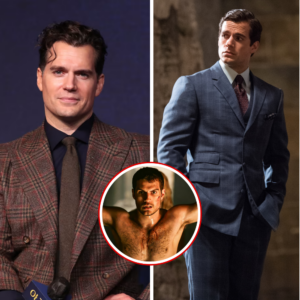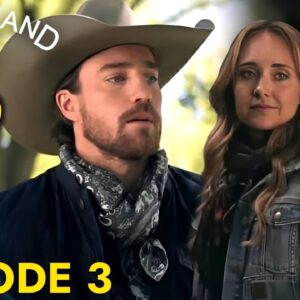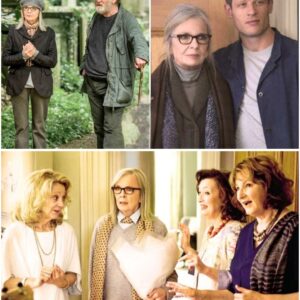In the grand, history-laden halls of Windsor Castle, where the stones whisper tales of monarchs past and the air hums with the weight of ceremony, a new chapter unfolded on September 30, 2025. Gary Oldman, the chameleon-like actor whose gravel-voiced gravitas has haunted screens for nearly five decades, knelt before Prince William, the Prince of Wales, and rose as Sir Gary Oldman. The knighthood, bestowed in recognition of his “outstanding services to drama,” marked the pinnacle of a career defined by fearless reinvention and unflinching authenticity. At 67, the London-born thespian – once the snarling punk of gritty indie films, now the rumpled spymaster of prestige television – stood tall in a bespoke Paul Smith morning suit, his eyes misting with an emotion he likened to “nothing else” in his storied life. This wasn’t just an honor for Oldman; it was a salute to British artistry’s enduring roar, a reminder that true knighthoods are forged not in battle, but in the alchemy of performance.
The investiture ceremony, one of several held annually to dispense the King’s Birthday Honours, unfolded with the pageantry that defines such occasions: trumpeters heralding arrivals, velvet cushions cradling gleaming swords, and a procession of honorees from darts prodigies to political stalwarts. Oldman, among 19 new knights that day, shared the spotlight with figures like former footballer David Beckham, elevated for his charitable endeavors, and rock icon Roger Daltrey of The Who, recognized for music and philanthropy. Yet, it was Oldman’s moment that captivated, blending royal decorum with the actor’s trademark wry humor. As Prince William – a self-confessed fan of both Oldman’s Sirius Black from the Harry Potter saga and his slovenly MI5 operative Jackson Lamb in Apple TV+’s Slow Horses – tapped the sword on each shoulder, he quipped about Lamb’s disheveled demeanor: “Every time I see you on screen, I want to give you a good wash.” Oldman, ever the quicksilver retort, glanced down at his impeccably tailored attire and fired back, “Well, I think I’ve scrubbed up OK today.” The exchange, light as it was, underscored the bridge between Oldman’s raw, rebellious screen personas and the polished reality of Windsor – a man who has spent his life blurring those lines.
For Oldman, the path to this sword’s gentle kiss was anything but linear. Born Gary Leonard Oldman on March 21, 1958, in New Cross, South London, he grew up in a working-class enclave scarred by the Blitz’s echoes and the austerity of post-war Britain. His father, Leonard, a former sailor turned bookmaker, abandoned the family when Gary was seven, leaving his mother, Joyce, a homemaker and Irish émigré, to raise him and his two sisters on sheer grit. Money was tight; holidays were pipe dreams. Yet, in the local library’s dog-eared scripts and the crackle of a black-and-white telly, young Gary found escape. “Acting was my rebellion,” he later reflected, a sentiment born from schoolyard taunts over his slight frame and the solace of drama club, where he first donned costumes and voices that weren’t his own.
His formal odyssey began at Rose Bruford College in Sidcup, where he honed a craft that would become his superpower: transformation. Oldman’s early theater days were electric – a 1980 debut as pirate captain in The War Plays at the Royal National Theatre, followed by a searing turn as Scopey, the drug-addled musician in Edward Bond’s The Pope’s Wedding. Critics raved; producers took note. But it was Sid and Nancy (1986), his blistering screen debut as Sex Pistols bassist Sid Vicious, that catapulted him. At 28, Oldman embodied the punk’s chaotic fury – heroin haze, snarling nihilism, and tragic self-destruction – earning a BAFTA nomination and whispers of “the next Brando.” The role, drawn from real-life tragedy (Vicious’s girlfriend Nancy Spungen’s stabbing death), was a gut-punch; Oldman, method to his marrow, lost 15 pounds and haunted London’s squat scene for authenticity. “I didn’t just play him; I became him,” he said, a line that would echo through his oeuvre.
The 1980s and ’90s cemented Oldman as cinema’s dark prince, a virtuoso of villainy who could pivot from Shakespearean menace to blue-collar rage. Prick Up Your Ears (1987) saw him as playwright Joe Orton, all camp wit and fatal hubris; JFK (1991) cast him as the haunted Lee Harvey Oswald, his twitchy paranoia a masterclass in understatement. Then came Bram Stoker’s Dracula (1992), where he slithered through Francis Ford Coppola’s gothic fever dream as the count himself – aristocratic seduction melting into feral horror. Off-screen, Oldman’s life mirrored the tumult: three marriages by 1998 (to actress Lesley Manville, with whom he shares daughter Gully; to Uma Thurman; to model Donya Fiorentino, mothers of his sons Charlie and Gulliver), battles with alcohol that nearly derailed him, and a reputation as Hollywood’s “eternal supporting player.” Yet, he thrived in the shadows, stealing scenes in True Romance (1993) as the profane mobster Drexl, or Hannibal (2001) as the pedantic Mason Verger, his voice a venomous purr.
The new millennium brought reinvention. Oldman’s Sirius Black in Harry Potter and the Prisoner of Azkaban (2004) introduced him to a generation – the brooding godfather, all haunted loyalty and animagus flair, a role he reprised through The Deathly Hallows (2011). Simultaneously, Christopher Nolan tapped him for the Batman trilogy (2005-2012) as Jim Gordon, the grizzled Gotham cop whose moral anchor grounded the chaos. These blockbusters – grossing billions – showcased Oldman’s range: from wizardly warmth to badge-wearing resolve. But it was behind the camera that he bared his soul. Nil by Mouth (1997), his directorial debut, was a semi-autobiographical gut-wrencher about a South London family’s alcoholism and abuse, starring Manville and his brother-in-law Ray Winstone. The film, raw as a fresh bruise, won him Best Director at the BAFTAs and Cannes’ Jury Prize. “It was therapy,” Oldman admitted, channeling his father’s ghost and his own demons into a script that screamed where dialogue faltered.
By the 2010s, accolades piled like autumn leaves. Tinker Tailor Soldier Spy (2011) earned him an Oscar nod as the enigmatic George Smiley, his stillness a thunderclap amid Le Carré’s Cold War intrigue. But it was The Darkest Hour (2017) that crowned him: as Winston Churchill, Oldman vanished into prosthetics and a bulldog growl, transforming from everyman actor to wartime titan. The performance – all cigar-chomping defiance and oratorical fire – swept the Oscars, BAFTAs, Globes, and beyond, his first Best Actor win after five decades of near-misses. “I stand on the shoulders of giants,” he said in his acceptance speech, tipping his hat to thespians like Daniel Day-Lewis and Anthony Hopkins. Critics hailed it as a career apotheosis; audiences saw a man who’d finally claimed the lead.
Post-Oscar, Oldman leaned into television’s golden age, trading silver screens for streaming prestige. Slow Horses (2022-present), Apple TV+’s sly spy thriller based on Mick Herron’s novels, recast him as Jackson Lamb – a farting, filthy, foul-mouthed Slough House reject whose genius lurks beneath the grime. The role, a delicious wallow in anti-heroic slobbishness, has revitalized his career, earning Emmys and Golden Globes. “Lamb’s the id unleashed,” Oldman chuckled, relishing the chance to subvert his Churchillian gravitas. Off-duty, he’s savored sobriety since 1997, remarried to Gisele Schmidt since 2017 (their blended family includes five children), and retreated to a Santa Barbara ranch where he paints – abstract bursts of color that echo his emotional palette – and tends bees. Philanthropy beckons too: advocacy for veterans via the Producers Guild, support for the Elton John AIDS Foundation, and quiet mentorship of young actors through masterclasses.
The knighthood, announced in June’s Birthday Honours alongside dames like Elaine Paige and knighthoods for Beckham and Daltrey, arrived as a thunderbolt. “I’m gobsmacked,” Oldman told interviewers, his Cockney lilt undimmed. The letter from the Prime Minister’s office – relayed via his manager Douglas Urbanski, who’s already dubbing him “SG” – felt surreal. “To join Olivier, Hopkins, Caine… it’s humility and pride in equal measure.” He toyed with declining, musing on the “incredibly rude” optics of refusal, but embraced it as a nod to his roots. For the ceremony, he chose Paul Smith – a longtime collaborator for tuxedos and now this sartorial armor – blending tradition with a rock’n’roll edge: pinstripes sharp, pocket square flamboyant. “You’ve got to keep it a little rock’n’roll,” he grinned, ever the punk at heart.
Prince William’s personal touch elevated the day. The prince, a Potter devotee (his children, George and Charlotte, are fans too), confessed binge-watching Slow Horses. “I’m a fan,” he admitted, before the Lamb jest. Oldman, throat tight, could barely respond: “It was emotional. Very emotional.” He floated returning to Hogwarts – “Dumbledore? I’d consider it” – but demurred on Sirius: “Too old now.” The exchange humanized the pomp, a prince geeking out with a sir, bridging tabloid royalty and Tinseltown.
As Sir Gary Oldman steps into this titled twilight, his legacy gleams undimmed. From Sid’s snarls to Churchill’s roars, Lamb’s lassitude to Smiley’s silences, he’s been the shape-shifter supreme, proving drama’s power to probe the human fray. This knighthood isn’t an endpoint; it’s affirmation. In a world of fleeting fame, Oldman endures – a knight errant of the arts, sword now sheathed, but spirit forever slashing through the veil. Arise, indeed: Sir Gary, the everyman eternal.



